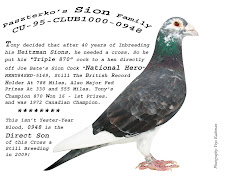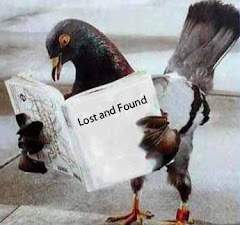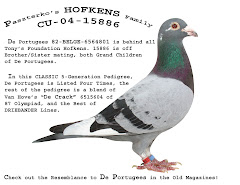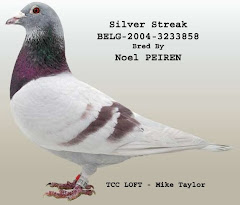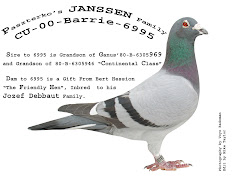TCC Loft asks "Has anything changed?" This may have already been answered in 2005. Today's news, combined with a 2005 article written by Dr Paul G. Miller PhD, DVM, Pennsylvania , USA
By Jeremy Haiinsworth, The Associated Press
December 6, 2014
VANCOUVER - Seven countries have imposed trade restrictions on Canadian poultry
as a fifth farm in British Columbia's Fraser Valley was put under quarantine
for avian influenza, officials said Saturday.
The Canadian Food Inspection Agency said that more than 140,000 turkeys
and chickens from the affected farms will be euthanized.
B.C. chief veterinary officer Dr. Jane Pritchard says 60,000 turkeys are
in the fifth farm.
Avian influenza was first detected a week ago on a broiler-breeder chicken farm in Chilliwack which housed 7,000 chickens. About 1,000 of the chickens died from avian influenza.
Officials say no people have fallen ill.
The B.C. outbreak has led at least seven countries —the United States,
Japan, South Korea, Taiwan, China, South Africa and Mexico — to ban poultry
products from B.C. or all of Canada.
Canada's chief veterinary officer, Dr. Harpreet Kochhar said birds from
the first farms where avian influenza was detected have already been
euthanized.
Kochhar said the source of the infection is not yet known, although he
added that it's possible that wild or migratory birds could have infected the
farms. He said the focus is on containing the infection's spread.
Pritchard said there had been movement of birds between some of the
infected farms.
In 2004, health officials ordered 17 million chickens, turkeys and other
domestic birds slaughtered to contain an outbreak of avian influenza at 42
poultry farms in B.C.'s Fraser Valley, costing the poultry industry hundreds of
millions of dollars.
Avian influenza poses little risk to people who are consuming poultry
meat if it is handled and cooked properly.
In rare cases, the virus can be transmitted to people who have had close
contact with the birds, health officials said.
Avian Influenza - Update Winter 2005
Dr Paul G. Miller PhD, DVM
Pennsylvania , USA
Dr Paul G. Miller PhD, DVM
Pennsylvania , USA
In the
United States and Canada, the situation is as it was before: the American H5N1
has low pathogenicity, and pigeons (and humans) don't get it. That doesn't mean
that we can become complacent and forget about Avian Influenza; we still need
to be very vigilant and make sure that all Avian Influenza is well controlled
so that we don't get into the situation we have in Asia. In particular, let me
reiterate a few precautionary principles.
- Do NOT let your birds mix with migratory birds, especially waterfowl or shorebirds. All wild birds should be kept out of your loft and off your premises. Do NOT feed wild birds around your pigeon loft.
- Do NOT let your birds mix with any other domestic poultry; galliforms and waterfowl can and do get Avian Influenza, and could set up a situation similar to the Asian situation, expanding the host range into pigeons. Don't let this happen.
- Do NOT allow your birds to mix with feral pigeons, and do not allow feral pigeons into your loft.
- Avoid any and all contact with hogs, even indirect. Hogs are the 'mixing vessel' to combine the Avian Influenza strains with human adapted strains. Many of the Avian Influenza cases I have seen in domestic poultry have been associated with hogs.
- When training, keep birds under control, and do NOT allow them to just sit around outside on the loft roof; they should be either in the air or in the loft. Young birds traveling to scout the territory is fine, as long as they are flying. Except for settling, birds should not just sit on the roof.
- Races and training flights should be arranged so that the birds can make it home in a reasonable amount of time. Do NOT release into bad weather, weather 'fronts', low atmospheric pressure, high winds, other races crossing their flight path, etc.
- Do NOT import pigeons from Europe, except through approved USDA quarantine stations. Since the Asian H5N1 HPAI can infect pigeons, we must be VERY CAUTIOUS with anything from Europe. There are plenty of good birds available domestically; it is no longer necessary to import from Europe.
- In the case of an Avian Influenza break in any species, keep yourself and your birds totally clear of any contact, even indirect or incidental.








